|
GSTA Statement on The Role of Science Learning in Supporting Literacy Development
Science & Literacy Virtual PL Series |
|
| #9: Conference Panel : Real Literacy in Real Middle & High School Classrooms Session Resources: | #10: Real Science, Real Literacy: Literacy Learning Cycles Make Reading and Writing Easier Session Resources: | #11: English Language Development & 3D Science Standards Session Resources: |
| #6: The Science of Reading Scores for Teachers Session Resources: | #7: The Science of Reading Scores for Leaders Session Resources: | #8: Read & Write Science: K-5 Science-Based Literacy Tasks Session Resources: |
#5 Stronger Together: Connecting science and literacy in young children’s learning
| #4: Ignite Curiosity and Imagination through Literacy: Elementary (& Even MS & HS Too) Students Delve into the Depths of Science-based Literature
Our fourth virtual PL session on science and literacy brought educators together to explore strategies that translate directly back to the classroom. What started as an elementary Saturday GSTA conference short course became an organic PLC including middle and high school teachers, too. The group shared ways to incorporate fiction and nonfiction books in science lessons that support students at all levels. Explore books that fit nicely into science lessons and engage students in enjoying literature as well as increasing science literacy and motivation. See what research says about reading different text structures. The panel used their experiences with read aloud selections and student books in the time together. Through integration and focus on purpose, using these phenomenal ideas can engage students in opportunities to make sense of science concepts while encouraging literacy in different subject areas. Session Resources:
| #3: Using Science Inquiry to Drive Literacy Learning: A Webinar With Dr. Gina Cervetti The third installment in GSTA's virtual PL series on elementary science and literacy featured nationally recognized expert Dr. Gina Cervetti. Dr. Cervetti shared her expertise in research and curriculum development focused on using science inquiry to drive literacy learning. To maximize their learning, students need something authentic and relevant to read and write about. Science is the answer! This webinar will help elementary teachers and leaders here in Georgia strengthen science and literacy learning for their students. View the session recording here. (Passcode:KW5L^Z$Z) Dr. Gina Cervetti from the University of Michigan researches the interface of literacy and content-area learning. She is interested in how inquiry experience in science can provide an authentic and engaging meaning-based context for literacy learning; she also examines the role of sustained engagement in a set of ideas for literacy development; and she is looking into ways to help students bring the tools of inquiry to bear on questions they encounter across the curriculum and outside of school. Dr. Cervetti is also involved in work on academic discourse and vocabulary acquisition in science and on how curriculum materials can best support teachers’ practice and teacher learning. Dr. Cervetti will use her research expertise and her experience working with teachers and students to share how you can use science inquiry to drive literacy learning in your elementary classroom. |
#2: "Voices from the Field" Panel on Elementary Science and Literacy
Stop #2 delivered a lively and informative panel discussion with six Georgia educators who have been immersed in the work of supporting students in both science and literacy learning. Panelists shared their challenges and successes in leveraging science learning to support and enhance early literacy. Panelists discussed strategies for supporting students from birth through 5th grade and specifically addressed students who need additional supports. These educators also shared a wealth of resources. If you missed the session or would like to review the panel's valuable insights, then please check out the recording and slide deck below. | #1: Q&A With Science For Georgia Executive Director, Dr. Amy Sharma
Literacy is critical to the success of every citizen in Georgia, yet we know that a narrow focus on literacy in the early grades can marginalize science learning and leave students with little of substance to read and write about. Science for Georgia (Sci4GA) is a nonprofit organization that works to build a bridge between scientists and the public to advocate for the responsible use of science in public policy. GSTA has partnered with Sci4GA to support their work to improve literacy in Georgia. This is an important opportunity to position science learning as a resource that supports literacy in the early grades rather than science being further marginalized. |
 Supporting Excellent Science Teaching for Georgia
Supporting Excellent Science Teaching for Georgia.png)
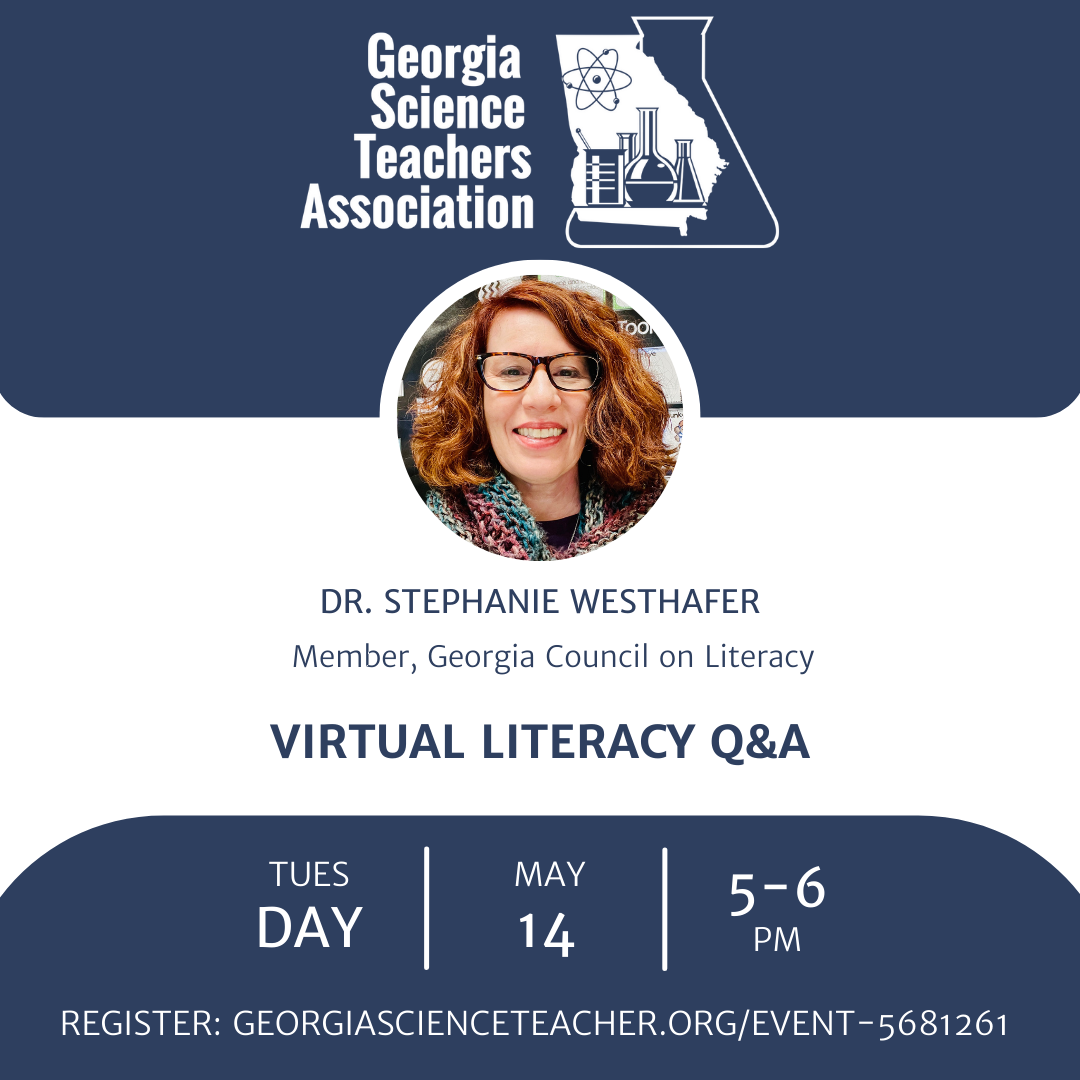
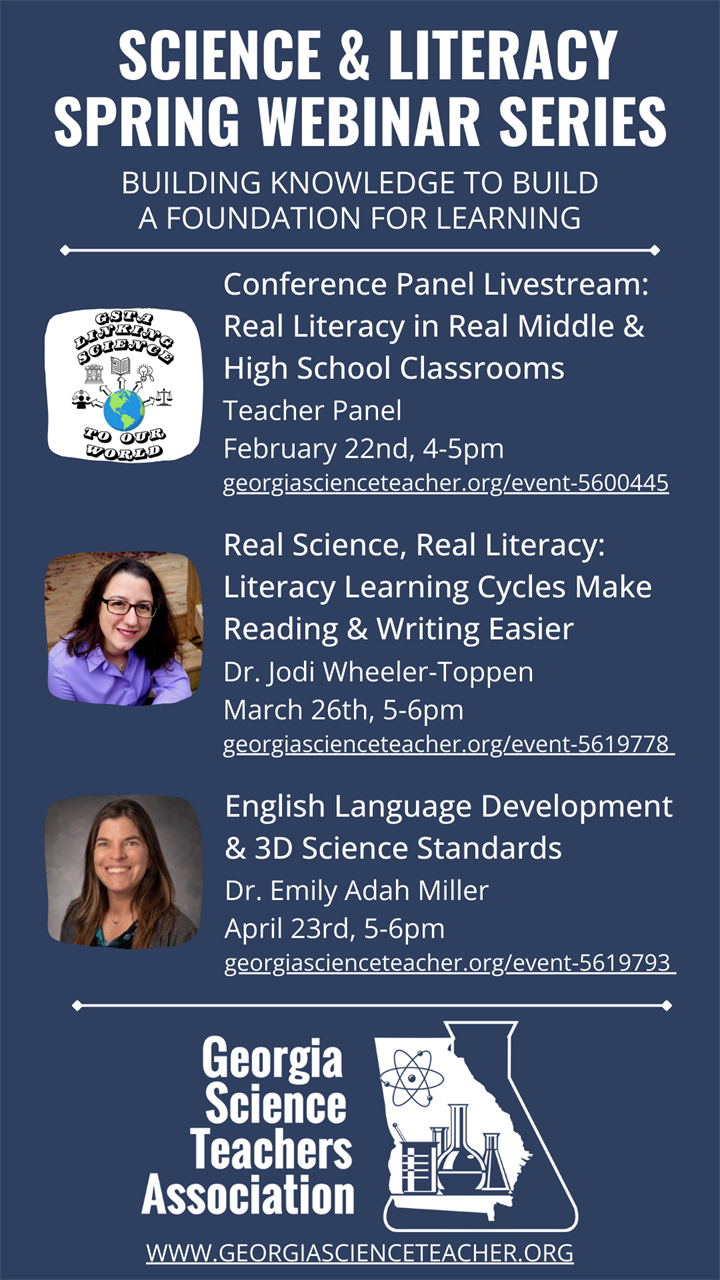
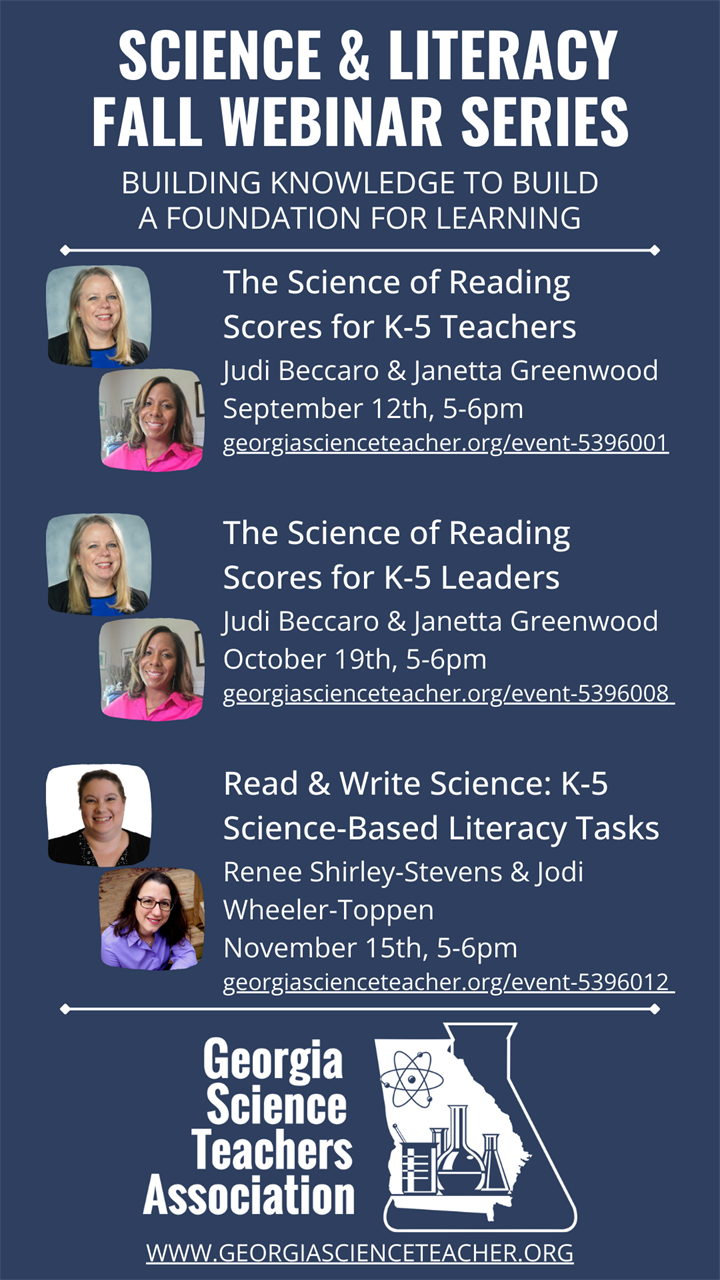
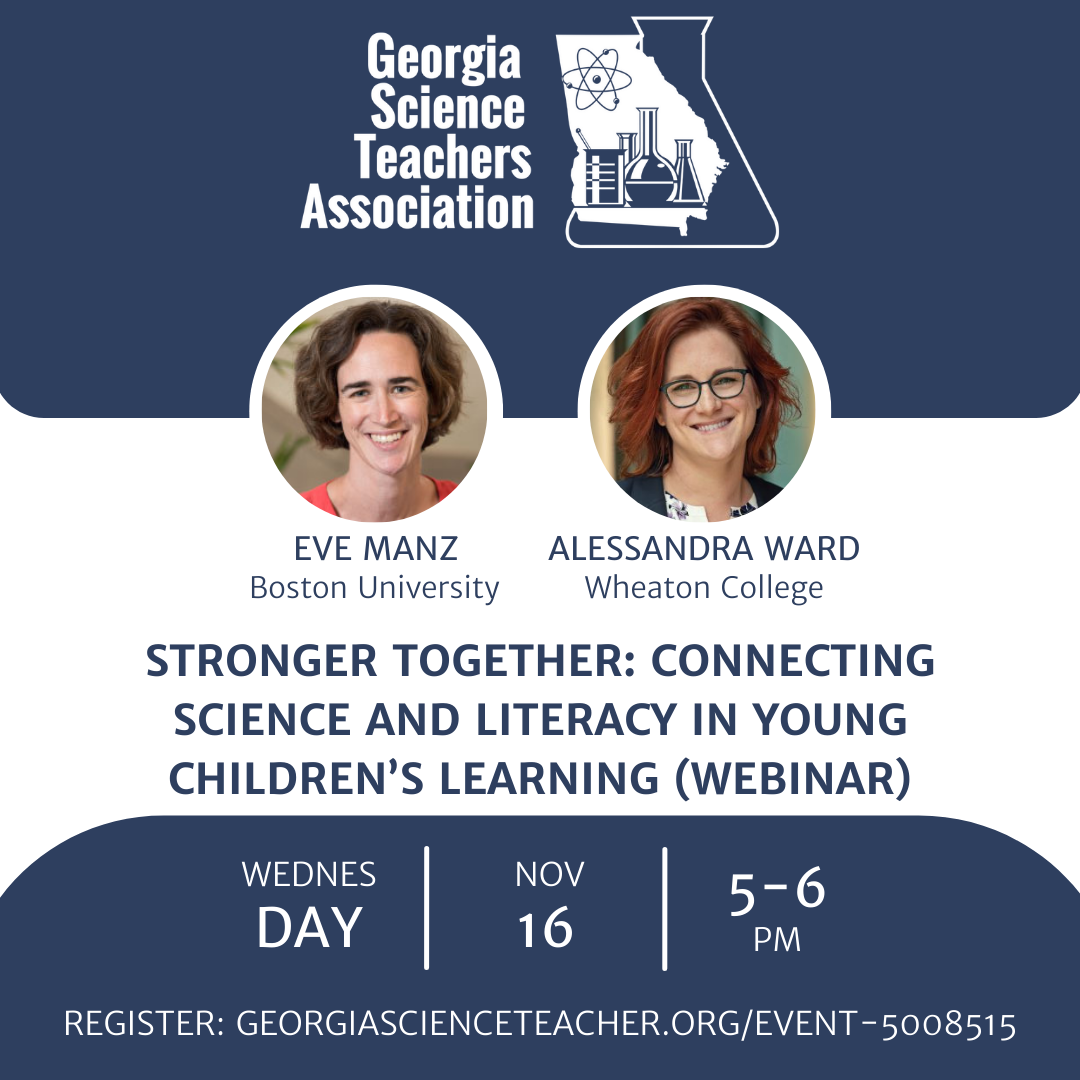
.png)
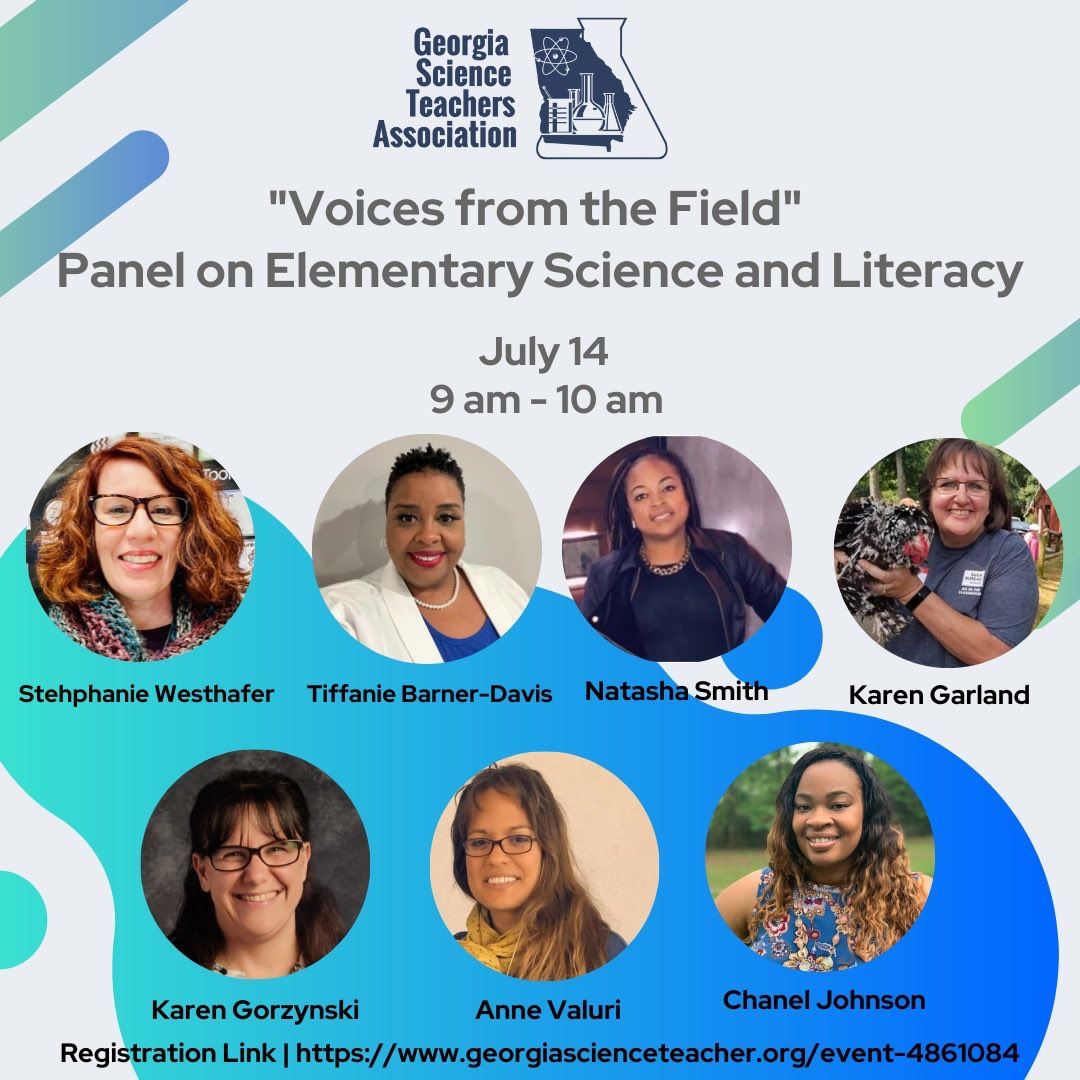
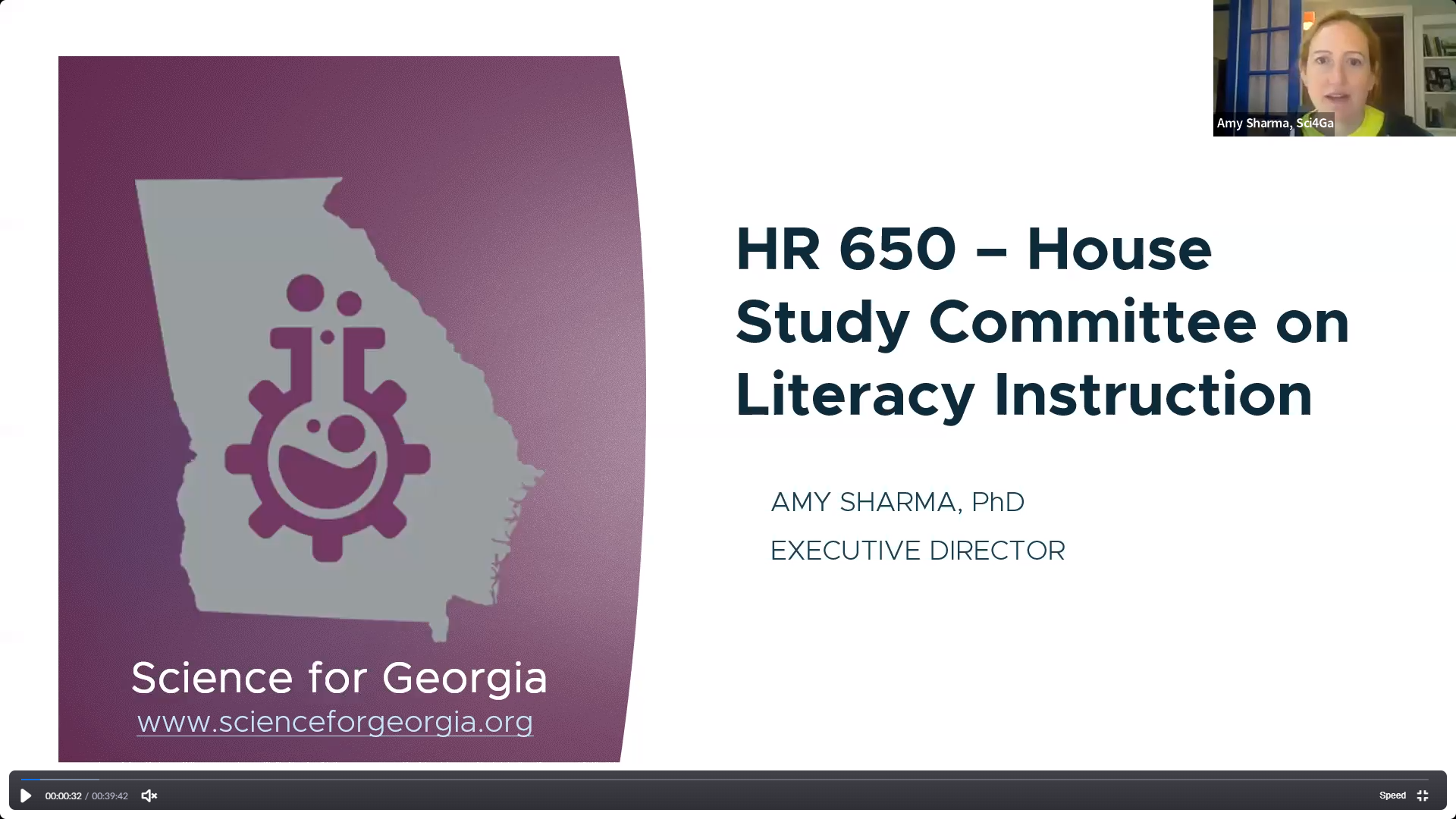 The first stop on our literacy PL journey was a terrific virtual Q&A June 2nd with Science for Georgia Executive Director, Dr. Amy Sharma, and several of our members. In case you missed the session or would like to review the information, here are several key resources.
The first stop on our literacy PL journey was a terrific virtual Q&A June 2nd with Science for Georgia Executive Director, Dr. Amy Sharma, and several of our members. In case you missed the session or would like to review the information, here are several key resources.